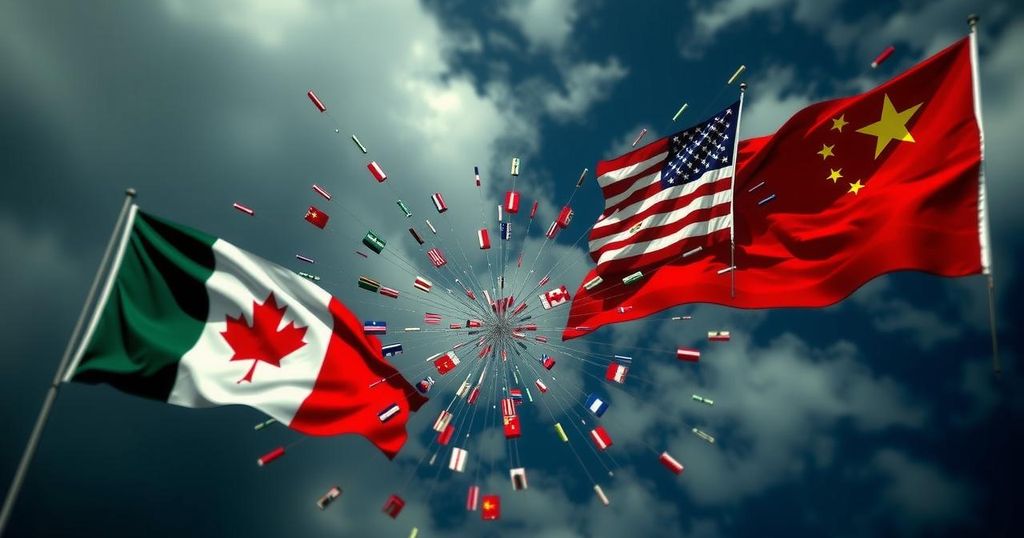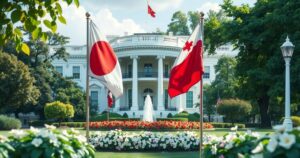Trump Proposes Significant Tariffs on China, Canada, and Mexico to Combat Drugs and Immigration

President-elect Donald Trump has proposed 10% tariffs on Chinese products and 25% on imports from Canada and Mexico to combat drug trafficking and illegal immigration. He cites ongoing issues with fentanyl, particularly from China, and expresses intent to maintain these tariffs until significant measures are taken by these countries to address the problems. The tariffs reflect Trump’s strategy to use economic policies as leverage in foreign relations.
President-elect Donald Trump has announced intentions to impose substantial tariffs aimed at China, Canada, and Mexico, reacting to the ongoing issues related to drug trafficking and immigration. Specifically, he has proposed a 10 percent additional tariff on Chinese goods entering the United States and a 25 percent tariff on products from Canada and Mexico. Trump’s statements arise from discussions he asserts were unproductive concerning China’s role in exporting illegal drugs, particularly fentanyl, into the U.S. He expressed frustration at what he perceives as China’s failure to act decisively against drug traffickers, despite claims of severe penalties for such offenses. The tariffs, according to Trump, would remain in place until these countries address the drug trafficking and immigration issues significantly tied to them.
In addition to these tariffs on imports, Trump highlighted the overwhelming number of individuals allegedly traversing Mexico and Canada, contributing to crime and drug-related problems. He proclaimed that, upon taking office, he would formalize these tariffs through executive orders and emphasized the open borders issue as a major concern.
China and Mexico have been identified as the primary countries responsible for fentanyl trafficking, as reported by the U.S. Drug Enforcement Agency. During his campaign for the 2024 election, Trump reaffirmed his commitment to impose tariffs on these nations as a strategy to mitigate drug influx into the country. The proposed measures reflect Trump’s broader economic policies that prioritize American interests, utilizing tariffs as leverage to influence foreign policy decisions ahead of his presidency.
In the context of U.S. trade and immigration policy, tariffs have been a critical tool for previous administrations to protect domestic industries and deter illegal activities. Under President Trump, the approach has often included the use of economic measures like tariffs as political weapons, particularly in relations with countries perceived as contributing to issues such as drug trafficking. The U.S. has struggled with fentanyl and other opioid crises, prompting officials to seek tangible strategies to combat these problems, including pressure on foreign governments to enforce stricter controls against drug trafficking.
In conclusion, President-elect Donald Trump’s proposed tariffs reflect his administration’s aggressive stance on addressing drug trafficking and immigration issues by leveraging economic measures. By threatening to impose significant tariffs on China, Canada, and Mexico, Trump aims to pressure these nations into taking more concrete action against the influx of drugs and illegal immigrants into the United States. His statements emphasize the intertwining of foreign policy and domestic security priorities, signaling a continuation of his America First approach once he assumes office.
Original Source: www.newsweek.com




